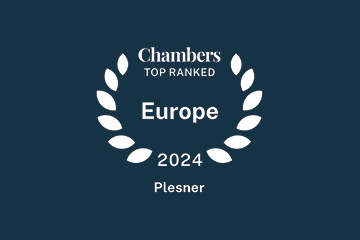Disclosure of confidential information in competition cases
The Danish Maritime and Commercial Court recently delivered judgment in a case concerning the question as to whether the Danish Competition and Consumer Authority is entitled to publish certain confidential information in a decision in a competition case. The judgment provides guidance as to whether and under which conditions various types of confidential information, including trade secrets and business secrets, may be disclosed in decisions in competition cases. The judgment is also relevant in terms of the issue of disclosure of confidential information in market research from the Danish Competition and Consumer Authority and in decisions concerning enforcement of the P2B Regulation and P2B-related market research.
Background
In 2018, the Danish Competition Council decided that Teller (now Nets), which at the time was the largest acquirer of international payment cards in Denmark, had abused a dominant position by using, in the period 2010-2016, rebates conditional on exclusivity and provisions regarding exclusivity capable of foreclosing access to the market.
The Danish Competition and Consumer Authority is as a general rule to publish the Danish Competition Council's decisions in full. The purpose is, among other things, to extend the knowledge of Danish competition case law and to provide any claimants with an opportunity to claim damages. However, confidential information, including trade and business secrets, is exempt from publication if it is of significant economic importance to the person or undertaking to whom the information relates that it is kept confidential. If so, the information is to be extracted in connection with publication of the decision.
In this specific case, Nets found that a number of information was to be excluded from publication. The Danish Competition and Consumer Authority accepted to exempt certain information but decided that the following categories of information were to be published:
- The identity and the number of companies to which Teller's behaviour related
- Which cards and card types Teller offered to acquire
- Teller's prices and rebates
- Extracts and information from Teller's contracts with customers, including the terms of such contracts and the payment cards comprised
- Teller's market position, including the total transaction volume and the total purchase amount in relation to each contract
- Teller's costs
- Other information, including the content of a letter from Teller to its customers that the contracts were non-exclusive, and a third party's estimate of Teller's churn rate
However, the information about Teller's rebates and its market position as well as the purchase amounts under specific contracts, among other things, would only be provided in spreads/intervals rather than precise numbers.
The information related only to the period 2012-2016 but some of the information was apparently still current, including the information as to which cards and card types Teller offered to acquire.
Nets appealed the Authority's decision to the Danish Competition Appeals Tribunal. Nets argued that disclosure of the information would provide Nets' competitors and customers with in-depth knowledge of Nets' business strategy and terms of business, which could entail an economic loss due to the loss of customers because competitors would be able to exploit knowledge about sales to and conditions in relation to specific customers. According to Nets, this could furthermore lead to an economic loss because current and future customers would be able to use the information in negotiations with Nets. In addition, Nets argued that even if the information relates to previous years, it generally indicates much about Nets' operation of its business.
However, the Appeals Tribunal concurred in the ruling of the Authority that there was no basis for exempting the information from publication - with the exception of one piece of information in a footnote, which the Authority acknowledged, during the appeal, could not be published.
Nets subsequently brought the case before the Maritime and Commercial Court.
The judgment of the Maritime and Commercial Court
The Maritime and Commercial Court found that the information at issue could in principle amount to trade and business secrets. However, the Court noted that if information essentially concerns or is included in the assessment of unlawful activities, it will be less likely that such information constitutes protectable business secrets, and that disclosure may lead to significant damage.
Next, the Court found that Nets had not provided sufficient specifics about its views that (i) the secrets were trade and business secrets, and (ii) that disclosure of the information would have a significant adverse effect on Nets. In that connection, the Court took into account, among other things, that some of the information was historical and that some of the information would be provided in intervals, but did not specifically address the other information.
Against this background, the Court upheld the Appeals Tribunal's decision that the relevant information could be published.
The judgment has been appealed to the Supreme Court.
Plesner's comments
The judgment of the Maritime and Commercial Court is interesting because only limited case law is available on the disclosure of confidential information in competition cases.
The judgment provides guidance as to the types of information which may be deemed to constitute trade and business secrets, and the conditions under which the disclosure of confidential information may be deemed to be of such significant economic importance to the person or undertaking whom the information concerns that it should be kept confidential.
This is particularly relevant to addressees of future decisions in competition cases. In addition to decisions from the Danish Competition Council, this applies for instance to decisions from the Danish Competition and Consumer Authority, rulings from of the Danish Competition Appeals Tribunal, judgments and penalties for infringement of competition rules, judgments concerning the appeal of decisions from the competition authorities and other judgments in civil matters concerning the application of competition rules.
The judgment is also relevant to companies contributing to the Competition and Consumer Authority's market research and other reports under the Danish Competition Act which are in principle subject to the same rules on the disclosure of trade and business secrets and other confidential information. However, the Authority may be more reluctant to publish confidential information in market surveys etc where there no unlawful activities are involved.
The judgment will also be relevant to the issue of disclosure of confidential information in the Competition and Consumer Authority's decisions concerning enforcement of the so-called P2B Regulation governing online intermediation services and online search engines, as well as in market research concerning online intermediation services and online search engines. Thus, the Act on enforcement of the P2B Regulation, which will enter into force on 1 July 2020, includes the same rules as the Danish Competition Act concerning non-disclosure of confidential information.
Read the Danish Maritime and Commercial High Court's decision here
Read the Competition Council' decision in the underlying abuse case (with deletions/extractions) [in Danish] here






